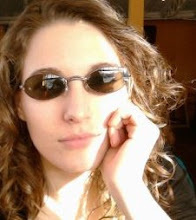
Friday, October 29, 2010
Welcome to Beautiful Europa

Wednesday, August 11, 2010
Words I savor.

A tea-time read.

I offer you an article from one of my most beloved magazines, Wired, that has put some thoughts I have had for a while into words...
Appeal to the Heart
Climate change is real Evolution is true. And science needs to up its PR game
On the final day of last winter's meeting of the American Association for the Advancement of Science, a panel convened to discuss the growing problem of climate change denial. It went poorly. Rather than brainstorming methods for changing public perception, the speakers wasted three hours trying to find someone to blame. Was it an anti-global-warming campaign by the coal industry? Journalists trying to make their stories appear "balanced"? The Climate-gate emails from the University of East Anglia?
But those are the wrong questions. What the scientists should have been asking was how they could reverse the problem. And the answer isn't more science; it's better PR. When celebrities like Tiger Woods or Tom Cruise lose control of their image, they don't waste time at conferences. They hire an expert. What the climatology community needs is a crackerjack Hollywood PR team.
Climate scientists know people don't believe them; they just haven't responded well. "They have to do a better job than the other side," says Kelly Bush, founder and CEO of ID, the entertainment industry's largest independently owned PR firm. Bush's clients include Patrick Stewart, Dustin Hoffman, Ellen Page, and comeback king Pee-wee Herman.
Bush says researchers need a campaign that inundates the public with the message of science: Assemble two groups of spokes-people, one made up of scientists and the other of celebrity ambassadors. Then deploy them to reach the public wherever they are, from online social networks to The Today Show . Researchers need to tell personal stories, tug at the heartstrings of people who don't have PhDs. And the celebrities can go on Oprah to describe how climate change is affecting themand by extension, Oprah's legions of viewers.
"They need to make people answer the questions, What's in it for me? How does it affect my daily life? What can I do that will make a difference? Answering these questions is what's going to start a conversation," Bush says. "The messaging up to this point has been 'Here are our findings. Read it and believe.' The deniers are convincing people that the science is propaganda."
In a handful of cases, nonprofits are trying to do what scientists won't. A group started by high-profile blogger Anil Dash, Expert Labs, is helping the White House with outreach to scientists, and Dash is operating from the same playbook as Bush. "We need to make the narrative more compelling. Scientists risk their lives and fortunes to do something that is, in many cases, an act of faith. They're heroes. It's a beautiful thing," Dash says. "Imagine the impact if a scientist said, 'I've been working in climate science for 20 years, and it breaks my heart that people don't believe in what I do.'"
This kind of talk unsettles scientists. "Scientists hate the word spin . They get bent out of shape by the concept that they should frame their message," says Jennifer Ouellette, director of the Science and Entertainment Exchange, a National Academy of Sciences program that helps connect the entertainment industry with technical consultants. "They feel that the facts should speak for themselves. They're not wrong; they're just not realistic." By and large, Dash says, "scientists have withdrawn from the sphere of public culture. They have contempt for the lighthearted fun of communication."
"Scientists feel the facts should speak for themselves. They're not wrong; they're just not realistic."
It didn't even occur to the AAAS panelists that someone might find that here's-the-data-we're-right attitude patronizingand worthy of skepticism. "Until scientists realize they need us, we can't help them," Bush says. "They have to wake up and say: 'I recognize it's not working, and I'm willing to listen to you.' It's got to start there." Science increasingly must make its most important cases to non-scientistsnot just about climate but also evolution, health care, and vaccine safety. And in all of those fields, the science has proven to be incapable of speaking for itself. It's time for those with true passion to get over the stigma, stand up, and start telling their stories.
By: Erin Biba
http://www.wired.com/magazine/?intcid=gnav
Wednesday, July 21, 2010
In need of a cup of tea...
Do not stand at my grave and weep
-Mary Elizabeth Frye

Saturday, June 19, 2010
New Baby!
Monday, June 14, 2010
Dynastes tityus
















